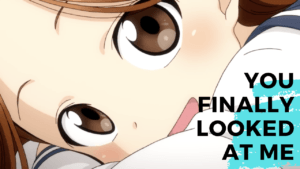Let’s learn Japanese with Ken Kaneki’s quote from Tokyo Ghoul (東京喰種トーキョーグール).
CONTENTS
Video
Ken Kaneki’s Quote
Japanese: 僕を喰おうとしたんだ。僕に喰われても仕方ないよね?
Romaji: boku o kuō to shita nda. boku ni kuwaretemo shikata nai yone?
English: You tried to eat me. Even if you get eaten by me, that cannot be helped, right?
Analysis
僕を喰おうとしたんだ
僕 means “I” only used by men. It’s less formal than 私 but more formal than 俺.
を indicates the direct object of the following verb.
喰おうとした is the past tense of 喰おうとする. A verb volitional form followed by とする means “to try to do something”. 喰おう is the volitional form of 喰う which is the rough way to say 喰べる meaning “to eat“. So 僕を喰おうとした means “you tried to eat me”.
There is the other kanji for eating (食) which is more commonly used. When it’s combined with the kanji, “口” meaning “a mouth”, it means “to eat in order to live or survive” so it’s often used for animals. It’s also used for ghouls as they eat in order to live rather than for fun.
んだ is the broken version of のだ which is used when giving an explanation about the context. So he’s explaining the good reason for what he’s going to do. So 僕を喰おうとしたんだ means “you tried to eat me“ in an explanatory tone.
僕に喰われても仕方ないよね
僕に喰われても means “even if you get eaten by me”. “A verb te-form followed by も” means “Even if one does something”. 喰われて is the te-form of 喰われる which is the passive form of 喰う so 喰われても means “even if you get eaten” and 僕に means “by me”.
仕方ない literally means “there is no way to do something” and it’s often translated as “it can’t be helped”. It’s mainly used when an unpleasant situation cannot be avoided and must be accepted.
Lastly, よね is the sentence ending particles meaning “right?” used when you want confirmation from the listener.
Examples
Volitional-Form + とする (to try to do something)
家を出ようとしたとき、電話が鳴った。
ie o deyō to shita toki, denwa ga natta.
When I was about to leave the house, The phone rang.
猫が木に登ろうとしている。
neko ga ki ni noborō to shite iru.
A cat is trying to climb the tree.
逃げようとしたが、捕まってしまった。
nigeyō to shita ga, tsukamatte shimatta.
I tried to escape but I got caught.
Difference Between “Volitional-Form + とする” and “Te-Form + みる“:
- Volitional-Form + とする – to attempt to do something with strong volitions/to make an effort to do something
- Te-Form + みる – to try something out (usually for the first time to find out how it is, etc.)
The difference will be clearer when they are in the past tense:
喰おうとした – You intended to eat but it was unsuccessful
喰ってみた – You actually ate
んだ & Verb Passive Te-Form + も + 仕方ない
いつも嘘をついてるんだ。みんなに疑われても仕方ないよ。
itsumo uso o tsuiteru nda. minna ni utagawaretemo shikatanai yo.
You are always lying. Even if you are suspected by everyone, that can’t be helped.
お母さんのお気に入りの花瓶を割ったんだ。叱られても仕方ない。
okāsan no okiniiri no kabin o watta nda. shikararetemo shikatanai.
You have broken your mother’s favourite vase. Even if you get scolded, it can’t be helped.
そっちが先に殴ったんだ。殴られても仕方ないよな?
socchi ga saki ni nagutta nda. naguraretemo shikatanai yona?
You hit me first. Even if you get hit, that can’t be helped, right?
You can also say 仕方がない (more formal) or しょうがない (more informal).
Support Easy Peasy Japanesey
If you enjoy our content, please consider supporting Easy Peasy Japanesey. Your support will help keep us going. Thank you for your support!


